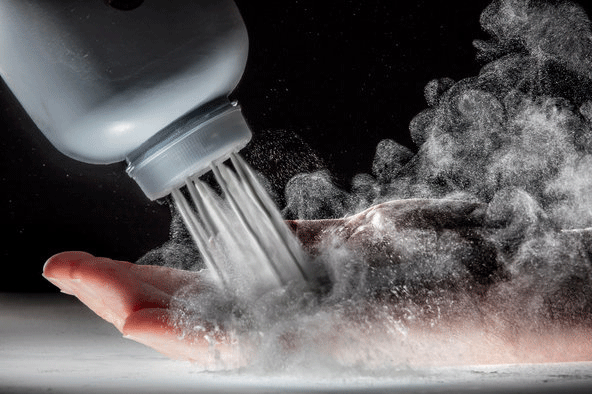
Talc, the key ingredient in baby powder, is a naturally
occurring mineral that is found throughout the world. Talc is a soft mineral
comprised of magnesium, silicon and oxygen. The substance is mined, crushed,
dried, and milled for use in consumer products. Talc is used for a variety of
household and industrial purposes. In the case of baby powder, talc is renowned
for its ability to absorb moisture, reduce friction and prevent rashes.
Talc-based products have been marketed to women for genital hygiene purposes as
body powder and genital deodorant sprays. Talc particles may also enter the
female reproductive system through tampons, sanitary pads and diaphragms that
are dusted with baby powder. Talc particles that reach the ovaries can result
in the growth of ovarian cancer cells. Experts estimate that roughly one in
five American women applies talcum powder to her genitals on a regular basis.
The decades of research on the role of baby powder in bringing about cancer cell development indicate that women who expose their genital area regularly to talcum powder products are three times as likely to develop ovarian cancer as women who refrain from baby powder use. Research indicates that talc particles in the ovaries cause an inflammatory response, which has a range of medical implications. Among these, inflammation in the ovaries can cause increased cell proliferation and damage to DNA, which can result in the malignant transformation of cells, or ovarian cancer. Talc is poorly soluble, meaning particles from baby powder can remain intact within body tissues for many years.
Talcum powder has been found to cause ovarian cancer when used by women for perineal hygiene. Multiple scientific studies, including a meta-analysis of studies conducted of nearly 12,000 women published in the journal Anticancer Research in 2003, have found that weekly perineal dusting of talcum powder increases a woman’s risk of developing ovarian cancer by 33%. Despite evidence from four decades of scientific research on the topic, talc is not regulated for use in cosmetics in the United States.
Ovarian cancer is a deadly disease, which will claim an estimated 14,180 women in 2015, according to the American Cancer Society.
“As many as 10,000 women develop ovarian cancer each year as a result of their baby powder use.” - Harvard epidemiologist Dr. Daniel Cramer
Johnson & Johnson, a major manufacturer of talc-based baby powder and body powder, has been accused of failing to warn consumers of the risks of regular talcum powder use. The cosmetic giant, Johnson & Johnson, and other companies who manufacture and market talcum powder products including women’s body powder and baby powder, have argued against the connection between talc and cancer since that earliest finding.
For more information visit our Talcum Powder Lawsuit , FAQ , and Talcum Powder History.










